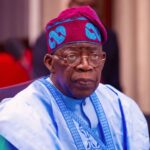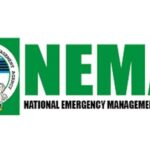In the wake of the COVID-19 pandemic in the country, many health workers made a lot of sacrifices in stemming the tide of the disease. Some of them died while others were infected with the virus on the line of duty at hospitals, isolation centres, laboratories, and surveillance posts, among others.
At height of the COVID-19 pandemic occasioned by panic over fear of the unknown, many health workers in Nigeria spent long hours attending to patients at isolation centres, conducting tests and providing public enlightenment.
Others, not necessarily health workers but people of good will, dedicated energy to researching about the virus or finding innovative solutions such as the development of ventilators, face masks, and other Personal Protective Equipment (PPE).
- FG orders compulsory COVID-19 tests for corps members
- COVID-19: Why clubs, night bars remain closed -FG
Other health workers took it upon themselves to provide financial support or donated medical items to health facilities and government agencies.
A lot of them were harassed by security agencies while on their way to work during the lockdown, and had to work several days without going home to see their families in order to protect them from the virus.
According to Dr Japhet Olugbogi, the Lagos State Chairman of the Nigeria Medical Association (NMA)’s Committee on COVID-19, health workers made a lot of mental, physical, financial and professional sacrifices.
He said while health workers were protecting the lives of residents, many of them were subjected to ridicule and harassment by security agencies.
He noted that when Lagos residents were asked to stay at home, health workers were going to their respective workplaces and spent extra money to commute to their workplace and return home.
He said a lot of them faced difficulties in terms of transportation as they could not get any vehicle to work.
He lamented that a lot of health workers could not get personal protective equipment (PPE) until they started making a lot of noise about it.
“Though the government made some available, it was not enough.
“A lot of health workers had to attend to patients without PPE and that led to many of them getting infected, and taking the infection home.
“We recorded deaths among health workers as a result of this.
“When the government sends soldiers to the battlefield, they equip them with bulletproof, riffles, and other protective gear to prevent the enemy from attacking them.
“So, why were the health workers not having protective equipment?” he asked.
“When I took COVID-19 test, my wife and kids did not have access to me for some days, this posed a mental burden on me.
“I was not myself until I found out that my result was negative,” he said.
He said during the lockdown many health workers stayed at their workplace overnight without anyplace to buy food or drinks.
Also, since the onset of the outbreak, health workers in Abuja and other states have been working tirelessly to prevent the spread of the virus as well as treating people who have been infected.
They work round the clock at the various isolation centres without any life insurance, and allowances or incentives.
- Lady who detected first COVID – 19 case in Ogun
In February, the first case of the coronavirus was detected in Ogun State through the ingenuity of a young female medical doctor, Dr Amarachukwu Karen Allison.
Allison works with the Larfarge Africa, a cement company.
The first carrier of the deadly virus was an Italian who visited the cement company’s plant at Ewekoro, Ewekoro Local Government Area of the state, where the young doctor detected the virus.
The Italian, a consultant to Larfarge, had visited the cement factory’ facility in Ewekoro and reportedly developed fever and was treated at the clinic located in facility.
The young medical doctor said that when the Italian patient walked into her consulting room at the factory, complaining of fever, headache and fatigue, she suspected instantly what his ailment was.
“I had been following the news trends at the time so when he walked into my consulting room with his complaints, he had a fever, it was high grade, headache, muscle pain and fatigue.
“I took his medical history and he said he had just come from Italy … so I knew it was likely COVID-19,” she said.
Allison’s action paid off when the Italian was tested and the result showed positive.
She received a lot of accolades from Nigerians including the state governor, Dapo Abiodun.
Also in June, a group of medical personnel successfully took delivery of a 28-year-old COVID-19 patient who put to bed at the State Hospital, Ijaye in Abeokuta.
The state Commissioner for Health, Dr Tomi Coker, said that a dedicated team of doctors, midwives and other health workers took the safe delivery of the mother, who was asymptomatic.
Daily Trust reports that no less than 98 medical workers were infected by the coronavirus out of which three deaths were recorded in the state.
Of the 98, 12 of them are doctors, while others are nurses and other categories of health workers.

- Kaduna doctor who paid home visits over COVID-19
Dr Usman Yelwa, a medical doctor with Jama’atul Nasril Islam Muslim Hospital located in Tudun Wada, Kaduna South Local Government area of Kaduna state is seen as a hero by residents of Tudun Wada.
He helped patients and the community during the pandemic by paying home visits to check on their health and educating residents on the dangers and preventive measures of the virus.
Our correspondent reports that for many patients in Kaduna State, the COVID-19 pandemic had made them have a phobia for hospitals and so many had stayed away for fear that the hospitals could be breeding grounds for the virus.
Dr Yelwa also visited the physically challenged and other less privileged within his immediate community to treat and educate them on the dangers of COVID-19 and its preventive measures.
“What gave me the courage to work during the pandemic was the passion I have for the job.
“I believe this is my calling; I became a doctor because I wanted to assist the less privilege.
“So when I realised that most of my patients were scared of coming to the hospital because of the virus, I decided to visit their homes to treat them.
“From there, I started to visit certain locations to find disabled people just to check on how they were coping and educate them on the virus,” he said.
Though many people within his community had doubts about the existence of the virus and claimed it was a political stunt, Dr. Yelwa was undeterred as he assembled and sensitised the people around Tudun Wada about the virus.
Asked if he was scared for his life during the period, Dr. Yelwa said: “Of course, I was but that didn’t discourage me because it is my job.
“I also knew everyone was scared at that time and people needed someone to encourage and educate them on how to protect themselves by following all the guidelines.”
- Unsung health workers in Akwa-Ibom
Since the fight against COVID-19 began, health workers in Akwa Ibom State have contributed in various ways to help stem the spread of the disease.
Professional associations like the Nigerian Medical Association (NMA) and the Pharmaceutical Society of Nigeria (PSN) have donated Personal Protective Equipment (PPE) like face masks and hand sanitizers to hospitals and the public as well as embarked on street sensitisation/awareness programmes on the disease.
At the peak of the fight, the then Chairman of the Nigerian Medical Association (NMA) in the state, Dr Nsikak Nyoyoko, said the union was at the forefront with the government in the fight against the spread of COVID-19 pandemic in the state, particularly among health workers.
“I don’t have an idea of the number of doctors that have been affected by COVID-19, but I am one of those that have been affected,” he said.
In fact, the three index cases of COVID-19 in the state were health workers.
One of them, Dr Otobong Asuquo, an obstetrician and gynaecologist was infected during a free medical outreach programme in the state he participated in.
However, he was not deterred because when he was certified free of the disease, he just went back to work.
- ‘How we built automated machines’
In their bid to make meaningful contribution towards the fight against coronavirus and other infectious diseases in Plateau state and the country, the trio of Williams Gyang, Nura Jibrin, and Adebolajo Sunday, built an Automated Disease Control System in Jos.
The system is built in three categories that perform almost similar functions of ensuring prevention against infectious disease.
Prior to the recent invention of the automated machines, Gyang and Jibrin were on April 3, this year, celebrated as heroes across Nigeria after they volunteered and fixed some broken ventilators at the Jos University Teaching Hospital at no cost.
They said they did it to save lives in the fight against the COVID-19 pandemic.
Their contribution to repair the two broken machines had saved the hospital millions of naira.
Mr. Gyang, leader of the team said “Governments at various levels are spending huge amounts of money to fumigate places.
They also spend money on Personal Protective Equipment (PPE) to ensure protection against the disease, “he said.
“At that time, even with the ventilators, we realised that the spread of COVID-19 was in the increase and the available ventilators in the country, are not sufficient compare to the population of the country.”
He said for that reason, they came up with an idea of inventing the machine that would nip in the bud the spread of the disease.
- BUK’s success story
Credit for the success story in the fight against COVID-19 in Kano is a result of the collective efforts of different personalities entrusted with responsibilities towards curtailing the menace of the pandemic in the state.
However, coordination of these activities and their execution by health workers in both isolation facilities and laboratories were made possible through resources generated by the fundraising committee headed by the former Vice-Chancellor of Bayero University, Professor Muhammad Yahuza Bello.
The Prof Bello led-committee brought about many interventions from corporate bodies and private individuals that saw to the establishment of critical facilities needed to contain the pandemic in the state.
The committee also played a vital role in the procurement and distribution of palliatives to the vulnerable households during the COVID-19 lockdown which helped a great deal in limiting the rate of community transmission of the disease.
Professor Bello was appointed by the Kano State Governor, Dr. Abdullahi Umar Ganduje as the Chairman of Fund Raising Committee for COVID-19 in Kano State late March.

 Join Daily Trust WhatsApp Community For Quick Access To News and Happenings Around You.
Join Daily Trust WhatsApp Community For Quick Access To News and Happenings Around You.


